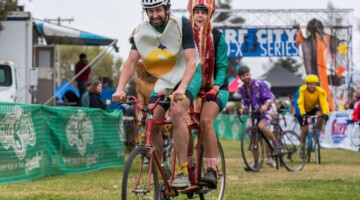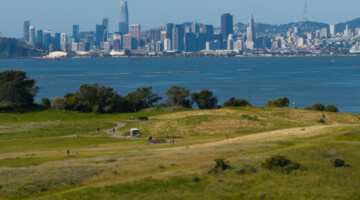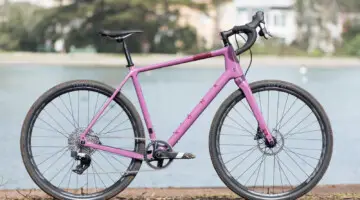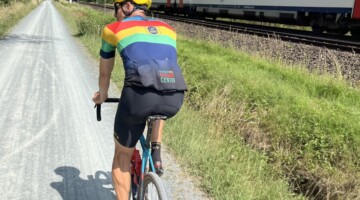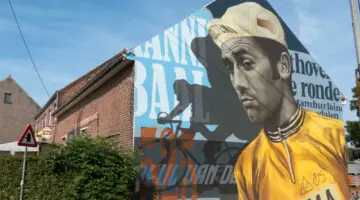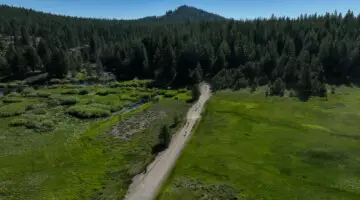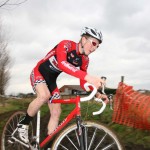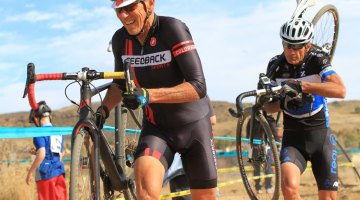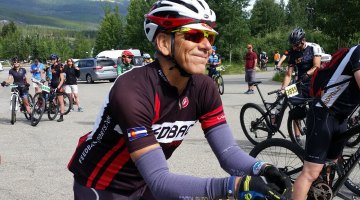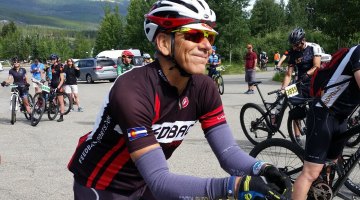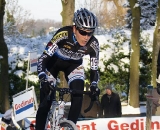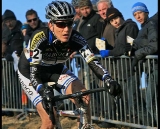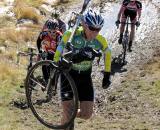We’re thrilled to launch a new series of journal entries by junior racer Eric Emsky of Rad Racing, as he writes about living and racing in Belgium in preparation for the world championships in Hoogerheide. You’ll be able to follow his adventures right here over the next few weeks. Eric is our first junior writer in our impressive crew of columnists. This is Part I of his debut column. Part II is here.
My name is Eric Emsky and I race for the Rad Racing Northwest/ Hagens Berman LLC. Junior Development Cycling team based out of Olympia, Washington. I am currently living at the USA Cycling Team house in Izegem, Belgium until the Cyclocross World Championships which occur on January 31st and February 1st. Until then, I will be basing my training and racing out of this small town located in the Flemish countryside.
I hope to be able to provide a window to the European Cyclocross Racing Scene for all of you at home to catch a glimpse of what really goes down. Being that I am a seventeen-year-old high school student, I hope to bring a fresh outlook to the world of cycling journalism. I hope you will enjoy what I have to share, even though it may not be much.
For the past three weeks, I have spent my life living the life of a pampered cyclist. I have all the time on hands to train to my fullest potential, race, recover, and do it all again. It has been quite the opportunity. My trip started as I traveled here to race in the Eurocross Cyclocross Camp run by Geoff Proctor. The camp was successful and all logistics went smoothly, but as camp was winding down, I felt like I still wanted more. The sport’s essence had ingrained itself into my heart. The cyclocross racing bug had burrowed its way too deep for me to dig it out in only two short weeks, I wanted to stay longer to race in the cyclocross heartland. Thankfully my school, parents, and coaches gave me the go-ahead and arranged for me to stay up until Worlds.
Let me not get too far ahead of myself, I loved the races which I took part in. The smaller national race illustrated the very essence of cyclocross; a bunch of bike racers racing around a farmer’s field, being driven by the glory of a win. The World Cup represented the sport’s highest tier, with riders of many nations assembling at once to battle it out head-to-head. The Superprestige in Diegem and the GVA in Loenhout were more show than gritty racing. Finally, the race in Sint Niklaas was a mix of the two extremes of cyclocross; it still retained the sport’s hard-man nature, but was also in a light-hearted atmosphere.
This being my first entry, I would like to talk about some misconceptions of racing here and some subjects I think you’d be interested in hearing more about. Let’s begin:
For starters, the stereotypical Belgian knows what cyclocross is. He knows just how hard the sport is and how much the athletes put into their race preparation. The sport is highly respected and well known. With over 20 races a season being broadcast live, chances are the average citizen has had the chance to see a race unfold, live. How cool is that?
When you think of Belgian cyclocross racing, what do you think of? Do you envision the glitter and flash of a World Cup, the party atmosphere of a GVA Trofee, or the mob of a Superprestige? You probably do, but when I envision cyclocross, I now see a racer plugging away on a bumpy farmer’s field with the vision of these huge races in the back of his mind. They are a motivator to pedal faster, make the pass, and get the result so that one day they can reach the top level of racing. They have to put up with the glamor-less, ass-busting traditional racing so they can prove they are faster than their compatriot and be awarded the chance to be able to represent their country. It is the same in the States, but there are just so many more racers at the start line, many of whom are scorching fast since the man next to them is fast and the competitiveness grows on top of itself and next thing you know, the whole field is fast.
Coming to a start line of a World Cup is such a different experience than what you will ever come across racing domestically. You have to realize that the people on the line, even the juniors, are racing not for fun, but as a job or a way for them to make it their job. It’s viewed as a way for them to make a name for themselves and hopefully be able to race professionally rather than working on the family farm, store, or in a factory. Many racers in the States look at cyclocross racing as an outlet for their everyday life. For many here, racing is life. This was hard for me to understand when I first heard about it last year. I had my head wrapped around the typical American way of life; go to school, go to college, find a job, work hard, and finally be able to retire after slaving away for many years. I had never really thought of any other paths to live your life. I’m not saying that the typical American way of life is a bad thing, but the view towards life is just so much different here. You basically have two options. Option A) Live a hard, rewarding, and traditional blue collar job such as working on a farm or B) Working in the booming industrial market as a white collar worker. Bike racers around the world aren’t like this. We like to go out, explore the world around us and not get stuck into a routine day after day, year after year, so it makes perfect sense that if these people have the opportunity to make it their livelihood, they will try to do just that. To summarize, the racer here sees his talent not as something that can just be made useful for a couple of weekends during the fall, but as a way to maybe make a living doing what they love to do.
Continue reading Part II of Eric Emsky’s debut column on Cyclocross Magazine
Eric is open to questions and suggestions on topics for his column. Drop a comment below, or drop him a comment on his Cyclocross Magazine profile. To read more about his Euro Cross Camp experiences, visit the Rad Racing Team Blog.





